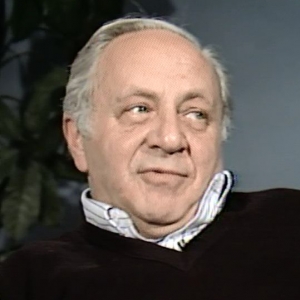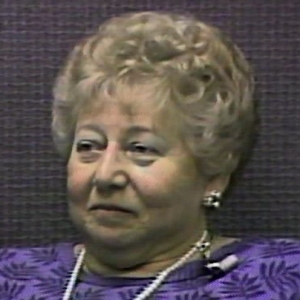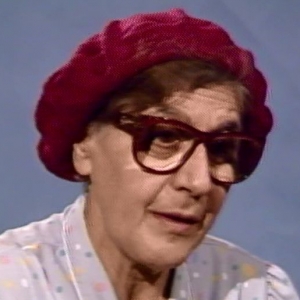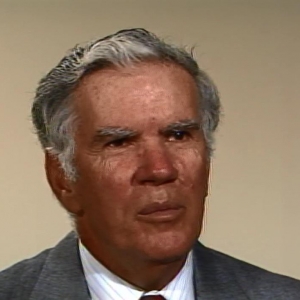Hanna (Anne) Mishna
Hanna Mishna describes working conditions in the Łódź ghetto.
Hanna Mishna was born in 1922, in Lódz, Poland. Hanna was an only child, and grew up in a loving home with her parents. She attended a Jewish school for girls, and had a carefree life. Hanna had Jewish and non-Jewish friends, and spoke Yiddish and Polish. Her father worked in a factory, and also taught Jewish children to write Yiddish.
After the German invasion of Poland, Hanna’s father disappeared during a bombardment and was never seen again. Hanna and her mother were sent to the Lódz (Littmanstadt) ghetto. In the ghetto she worked making straw shoes for the German military. Although life and living conditions in the ghetto were extremely hard with near starvation level rations of food, the family was together. Sometimes Hanna found potato skins that her mother cooked for meals. In wintertime, conditions deteriorated even further.
In November 1944, Hanna’s mother, along with older residents of the ghetto, was deported from the Lódz ghetto to a killing centre. With the loss of her mother Hanna’s situation in the ghetto was even more precarious and she continued to lose weight. Eventually, she was assigned to work in a bakery where she was able to increase her food intake. Slowly, her health improved a little. From the Lódz, ghetto Hanna was deported to do forced labour in Czestochowa, where life continued to be harsh. Czestochowa was liberated by the Soviet Red Army, under very fearful, dangerous conditions for a young woman. Eventually, the Soviet commanders established an orderly system and a civil life slowly returned.
After the war, Hanna met Max, the man who later became her husband, in a Displaced Persons’ Camp in southern Germany. Hannah and Max married, and in 1947 their son was born in the Displaced Persons’ Camp. Later, Max discovered that his father immigrated to Toronto, Canada. In 1949, Hanna, her husband and young son immigrated to Edmonton, Canada. They began their life together in Edmonton, and had two more children in Canada.
Hanna Mishna’s full testimony is part of the Canadian Collection of Holocaust survivor testimonies. It is preserved in the USC Shoah Foundation’s Visual History Archive and accessible through the Ekstein Library.
Hanna (Anne) MishnaIn the ghetto, we were starved.
Testimony to discover
-
Immigration

Michael Rosenberg
Michael Rosenberg describes life in the aftermath of the Holocaust.
Listen -
Escape

Rose Ruschin
Rose Ruschin describes how she was able to escape to England.
Listen -
Escape

Lolli Samosh
Lolli Samosh recalls how she and her family fled to Sweden, assisted by the Danish resistance.
Listen -
Physical Resistance

Peter Silverman
Peter Silverman describes joining a Jewish-Russian partisan brigade.
Listen
Educators & Students
Educational guides
Check resources